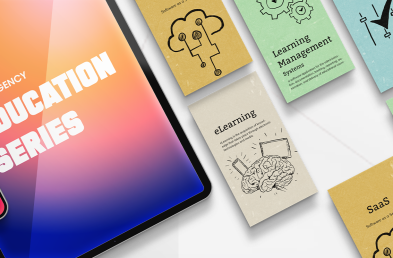You are driving down the road, windows down, the wind on your hair—you feel the speed, the smooth roar of the engine, and every once in a while, you step on the gas to go a little faster.
Your car allows you to enjoy this experience as it is. It gets you from A to B safely and comfortably. But you know you would love to be part of the Fast and Furious series with high-performing cars that will drive that quarter-mile in ten seconds with exceptional grip, safe and steady handling and swift acceleration.
An open-sourced Learning Management System (LMS), like ALEN LMS by Premergency, is a great car. Our plugins and SaaS development are what make that quarter-mile in ten seconds.
Plugins allow you to customize the car to your needs and expectations and enhance performance and functionality for a more strategic and efficient approach to workflow and learning. These plugins act like high-performance add-ons for your LMS, boosting its efficiency and allowing it to navigate complex educational landscapes with ease.
Essentially, plugins are add-ons that can be integrated into an LMS platform to provide additional features and capabilities. These can range from simple tools that improve user interface to complex systems that automate workflow and administrative tasks.
The Creative Process: Developing High-Performing Plugins
Like many other endeavours, developing a high-performing plugin involves a creative process. This ensures the tool’s quality and functionality while covering market and organizational needs.
Here’s a step-by-step overview:
Identifying the Need
Research and Feedback – This can take different forms, such as a Client’s request, market research, upgrades, opportunities for innovation, etc.
Paired up with analysis, we come to understand the gaps in the current state of technology and proceed to plan
Conceptualization and Design
Brainstorming Sessions – The sharing and analyzing ideas with other minds helps land a proper concept. Conduct sessions with developers, designers, and stakeholders to brainstorm ideas and features.
Prototyping – Create and draft prototypes and mock-ups to visualize the plugin’s interface and workflow.
Development
From Coding to Integration, we build the plugin using programming languages and frameworks compatible with ALEN. We then ensure seamless integration with the LMS, maintaining consistency in user experience, data flow, devices and third-party apps.
Testing and Quality Assurance
Beta Testing – Conduct thorough testing with a group of users to identify bugs and usability issues, followed by a Feedback Loop to gather insights and make necessary adjustments to enhance performance and user satisfaction.
Deployment and Maintenance
Deploy the plugin on the LMS platform and provide comprehensive documentation for users in the form of Knowledge articles, client collaboration and support systems.
Benefits of Plugins for Compliance Training, Management, and Automation
Enhanced Training Delivery
Plugins can incorporate multimedia elements like videos, quizzes, and simulations to create compliance training programs, giving a pinch of interactivity that fosters better engagement.
Adaptive learning technologies can tailor training content to meet the unique needs of each learner and allow you to analyze and personalize paths based on user performance, course completions and more.
Streamlined Management & Automation
Plugins can automate learner progress tracking, completion rates, and compliance status, reducing the administrative burden. On top of that, our plugins are designed to automate compliance at high-performing levels, covering multiple needs and workflows.
As a result, it consolidates training data in one place, making it easier to generate reports and analyze performance.
An Upgrade in Compliance
Real-Time Updates – Ensure that training materials are always up-to-date with the latest regulatory requirements and standards. Automatic distribution of policies, forms, and certifications, as well as notifications, tracking and communication channels.
Certification Management also evolves as the LMS and plugins will issue certificates upon course completion and manage renewals and expirations efficiently.
Efficient Automation
Workflow Automation – Automate repetitive tasks such as User Management and enrollment, notifications, and reminders, freeing up time for more strategic activities. Seamlessly integrate with HR systems, email platforms, and other tools to create a unified workflow.
Having a platform with expansion capabilities means having a versatile approach to management, learning and compliance. An LMS that integrates custom plugins and development gives you these opportunities and allows for an efficient environment to keep growing.
If you have any questions about plugins, SaaS development, or how you can leverage better opportunities with your Learning Management System, send us a message. We will be happy to explore new add-ons for your vehicle and take on that quarter-mile together.




